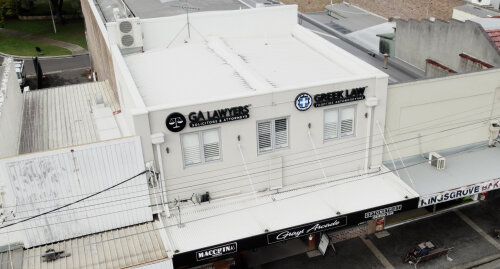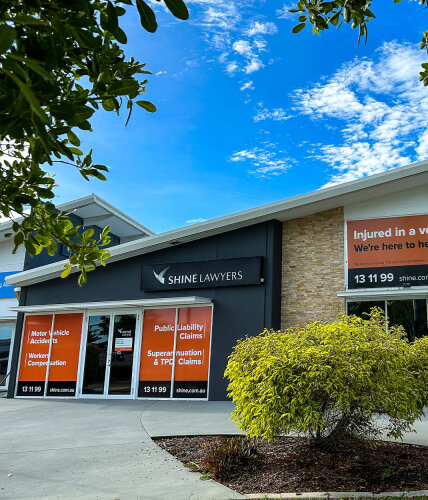Best Brain Injury Lawyers in Sydney
Share your needs with us, get contacted by law firms.
Free. Takes 2 min.
List of the best lawyers in Sydney, Australia
About Brain Injury Law in Sydney, Australia
Brain injuries can significantly impact an individual's life and well-being, often leading to complex legal cases. In Sydney, Australia, brain injury law encompasses a range of issues including personal injury claims related to accidents, medical negligence, and workplace injuries. The legal landscape is designed to protect the rights of individuals who have suffered brain injuries, ensuring they receive the necessary compensation and support for medical treatment, rehabilitation, and lost income. Legal practitioners in this field often collaborate with medical experts to establish the extent of damage and the appropriate compensation for their clients.
Why You May Need a Lawyer
Seeking legal assistance may be necessary in various situations involving brain injuries. If you or a loved one has suffered a brain injury due to a car accident or a fall at a public place, you may need a lawyer to navigate the compensation process. Cases of medical malpractice during surgery or treatment leading to brain injury also require legal guidance to hold the responsible parties accountable. Additionally, workers who have sustained brain injuries on the job might need legal representation to secure workers' compensation benefits. A lawyer specializing in brain injury law can help assess the viability of your case, provide expert advice, and represent your interests in negotiations or court proceedings.
Local Laws Overview
In Sydney, brain injury cases often fall under personal injury law, which is governed by the Civil Liability Act 2002 (NSW). This legislation outlines the duty of care owed by individuals and organizations and establishes the criteria for proving negligence. Furthermore, motor vehicle accidents are covered under the Motor Accidents Compensation Act 1999, which regulates claims related to road traffic injuries. Work-related brain injuries are handled under the Workers Compensation Act 1987, which provides guidelines for claiming workers' compensation. Understanding these legislative frameworks is crucial for navigating brain injury claims effectively in Sydney.
Frequently Asked Questions
What should I do immediately after a brain injury incident?
Seek immediate medical attention and document the incident with detailed notes and photographs if possible. Report the injury to relevant authorities, such as your employer or law enforcement, depending on the nature of the incident.
How can a lawyer help with my brain injury case?
A lawyer can guide you through the legal process, help gather evidence, negotiate with insurance companies, and represent you in court if necessary. They work to ensure you receive the compensation and support you deserve.
What compensation can I receive for a brain injury?
Compensation can include medical expenses, rehabilitation costs, lost wages, and damages for pain and suffering. The specific amount depends on the severity of the injury and its impact on your life.
How long do I have to make a brain injury claim?
In New South Wales, the time limit for filing a personal injury claim is usually three years from the date of the injury, but there are exceptions. It’s crucial to seek legal advice promptly to ensure your claim is filed within the appropriate timeframe.
What if the brain injury was caused at work?
If the injury occurred at work, you might be entitled to workers' compensation benefits. A lawyer can assist in navigating the often-complicated process of claiming these benefits, including dealing with insurers and any disputes.
Can I make a claim if I was partially at fault?
Yes, you may still be able to make a claim, though the compensation awarded may be reduced based on your level of contribution to the incident.
What role do medical experts play in my case?
Medical experts assess the extent of your brain injury and provide crucial evidence about your needs for ongoing care and the impact of the injury on your life, which is vital for determining compensation.
What is the difference between a settlement and going to trial?
A settlement is an agreement reached between you and the other party, often with the help of lawyers, to resolve the claim without going to court. Going to trial involves a court hearing where a judge makes the final decision.
Do I need to go to court for my brain injury claim?
Not necessarily. Many brain injury claims are settled out of court. However, if a satisfactory settlement cannot be reached, court proceedings may be necessary.
How do I choose the right brain injury lawyer?
Select a lawyer with specific experience in brain injury cases, a track record of successful outcomes, clear communication, and a fee structure that you understand.
Additional Resources
Consider reaching out to organizations such as Brain Injury Australia, the New South Wales Paralegal Association, or the Law Society of New South Wales for further information and support with brain injury cases. These organizations can provide resources, legal aid information, and recommendations for qualified lawyers.
Next Steps
If you need legal assistance for a brain injury, begin by gathering all pertinent information about the incident and any ongoing medical treatment. Consult with a specialized brain injury lawyer to discuss your case and understand your legal options. It’s advisable to interview multiple lawyers to find one who is experienced, empathetic, and fits your needs. Early engagement with a lawyer ensures timely action and better preparation of your case for any challenges ahead.
Lawzana helps you find the best lawyers and law firms in Sydney through a curated and pre-screened list of qualified legal professionals. Our platform offers rankings and detailed profiles of attorneys and law firms, allowing you to compare based on practice areas, including Brain Injury, experience, and client feedback.
Each profile includes a description of the firm's areas of practice, client reviews, team members and partners, year of establishment, spoken languages, office locations, contact information, social media presence, and any published articles or resources. Most firms on our platform speak English and are experienced in both local and international legal matters.
Get a quote from top-rated law firms in Sydney, Australia — quickly, securely, and without unnecessary hassle.
Disclaimer:
The information provided on this page is for general informational purposes only and does not constitute legal advice. While we strive to ensure the accuracy and relevance of the content, legal information may change over time, and interpretations of the law can vary. You should always consult with a qualified legal professional for advice specific to your situation.
We disclaim all liability for actions taken or not taken based on the content of this page. If you believe any information is incorrect or outdated, please contact us, and we will review and update it where appropriate.

















